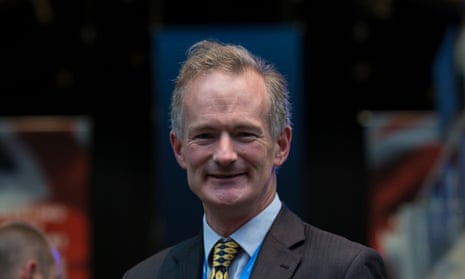Ministers have hinted they could be prepared to back down on plans to slash opposition party funding, known as Short money, amid signs some Conservatives could revolt over the cuts.
John Penrose, a Cabinet Office minister, said a new consultation about the move would start shortly, after Labour called an urgent question in the House of Commons to condemn the government’s “shabby” handling of the plans.
Some Tories feared the cuts of 19% to state funding for opposition parties would set a bad precedent and contravene the principle that such moves are done on a cross-party basis.
The move comes on top of the government’s trade union bill that is expected to cut Labour’s funding from the unions by as much as £8m, as members will be forced to opt into subscriptions rather than being automatically affiliated with the choice of opting out.
Cuts to Short money will hit the finances of Labour, the SNP, the Lib Dems, Greens and other smaller parties, potentially leading to redundancies.
On Thursday, Chris Bryant, the shadow leader of the House of Commons, warned ministers against reducing this support at a time when they have hired more special advisers than ever before at an increased cost of £2.5m a year.
“In opposition, the prime minister said he would cut the number and cost of special advisers, yet in government he has appointed 27 more special advisers than ever before and the cost has gone up to the taxpayer by £2.5m a year,” he said. “There’s a word for that, Mr Speaker, but it’s not parliamentary.
“In opposition, the Conservatives banked £46m a year in Short money but in government they want to cut Short money by 20% for the opposition..”
Bryant added: “How can it be right for the government to cut the policy development grant for political parties by 19% when it’s not cutting the amount of money spent on special advisers of its own?
“Surely history has taught us that an overweening executive is always a mistake. Surely if a party in government needs financial support in addition to the civil service then it’s in the national interest that all the opposition parties should be properly resourced as well.”
Bryant said the government had been briefing journalists that its proposals will be published on Friday – when parliament is in recess.
In his reply, Penrose suggested the government might be prepared to listen to objections and water down its plans.
“It’s extremely important to understand the consultations involve a dialogue and it therefore means your determined assault is rather blunted by the notion that you will have a huge opportunity to contribute, as will other people on all sides of the house as required, as soon as this consultation is launched,” he said.
Bernard Jenkin, the Tory chairman of the public administration and constitutional affairs committee, said he would investigate the issue.
“It is quite clear from these exchanges that the government has, if the policy is as reasonable as he insists ..., handled this matter in a clumsy manner, that the opposition feels un-consulted. Or is it that there is an agenda behind this change which is rather more political in its intent?
“My committee has already had correspondence from another Conservative select committee chair expressing concern about this.
“We are looking into this matter and we are going to inquire into this matter because I think all sides of this should have a fair hearing so these matters can be agreed by consensus.”
The system is named after the former minister Edward Short, who devised it in 1974 to compensate opposition parties for not having access to Whitehall resources.

Comments (…)
Sign in or create your Guardian account to join the discussion